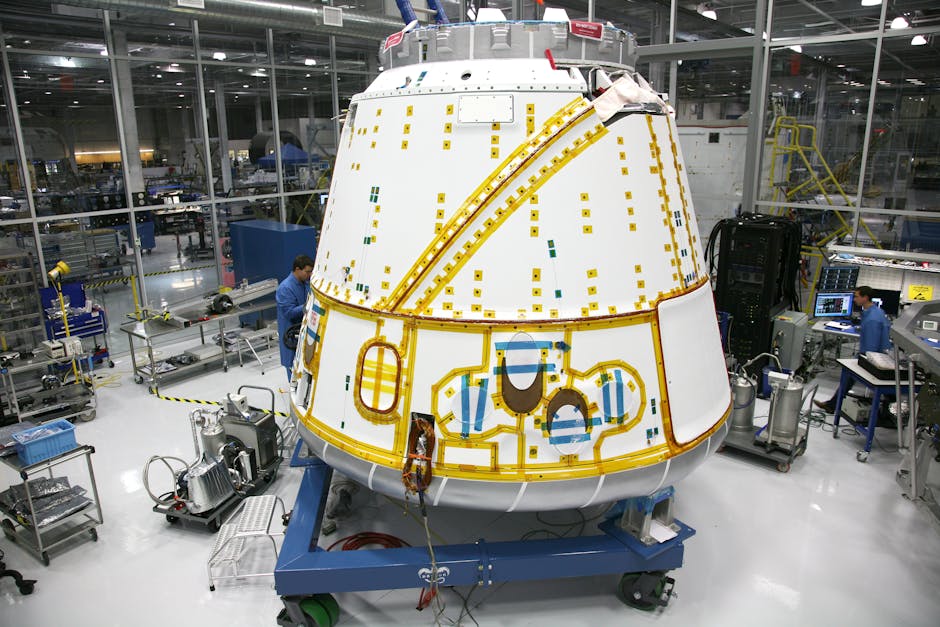AI Vs Manual: Secret to Efficient Business Workflows?
In the quest for optimised business operations, the debate between leveraging artificial intelligence (AI) and manual processes to achieve efficient workflows remains a pivotal consideration.
For professionals seeking a comprehensive understanding of the strategic choices that underpin their business processes, the discernment between AI and manual methods holds significant implications.
This enquiry delves into the nuanced dynamics of workflow management, aiming to unveil the clandestine to unlocking operational efficacy.
By scrutinising the practical implications of AI integration and the potential advantages it confers, discerning individuals can gain insights into the intricate interplay between technological automation and human intervention, ultimately steering business workflows towards optimal efficiency.
Key Takeaways
- AI and ML capabilities can automate tasks, analyse data, and provide insights, enhancing productivity and accuracy in business workflows.
- Workflow automation reduces the need for manual labour, minimises errors, and allows employees to focus on higher-value activities.
- Implementing AI in business processes improves operational efficiency, customer experiences, and problem resolution.
- While AI and ML integration have challenges such as understanding context and data quality, investing in AI technologies that learn from human feedback and designing processes to ensure human intervention and data quality assurance can address these limitations.
Understanding AI and ML

One of the key determiners of efficient business workflows is the understanding of artificial intelligence (AI) and machine learning (ML). AI capabilities, including machine learning algorithms, have revolutionised the way businesses operate.
AI capabilities involve the use of complex algorithms and data processing to enable machines to replicate human cognitive functions. Machine learning algorithms, a subset of AI, allow systems to learn from data, identify patterns, and make decisions with minimal human intervention.
Understanding AI capabilities and machine learning algorithms is crucial for businesses seeking to streamline their workflows. AI can automate repetitive tasks, analyse large volumes of data at high speed, and provide valuable insights for decision-making. Machine learning algorithms, such as supervised learning, unsupervised learning, and reinforcement learning, enable systems to continuously improve and adapt to new information.
This understanding empowers businesses to leverage AI and ML effectively, enhancing productivity, accuracy, and innovation within their workflows.
Benefits of Workflow Automation

Implementing workflow automation can significantly enhance operational efficiency and productivity within businesses. By integrating automation tools into various processes, organisations can realise a range of benefits, including cost savings and a significant boost in productivity. The table below outlines some of the key advantages of workflow automation:
| Benefits of Workflow Automation | Description |
|---|---|
| Cost Savings | Automation reduces the need for manual labour, resulting in lower operational costs. It also minimises errors, thereby reducing potential financial implications associated with manual processing. |
| Productivity Boost | Automated workflows expedite tasks, leading to increased output and faster turnaround times. This allows employees to focus on higher-value activities, ultimately driving productivity gains across the organisation. |
Workflow automation not only streamlines operations but also empowers businesses to reallocate resources effectively. By automating repetitive and time-consuming tasks, employees can dedicate their time to more strategic initiatives, fostering innovation and growth. The resulting cost savings and productivity boost make workflow automation an indispensable tool for businesses striving to optimise their operational workflows.
Implementing AI in Business Processes

The adoption of AI in business processes enhances operational efficiency and productivity, building upon the benefits of workflow automation previously discussed.
AI implementation in business processes involves the integration of AI technologies into various operational activities, such as data analysis, decision-making, and repetitive task automation. By leveraging AI, businesses can streamline their workflows, reduce manual intervention, and achieve higher accuracy and speed in executing tasks.
One key aspect of implementing AI in business processes is the utilisation of machine learning algorithms to analyse large datasets and extract valuable insights. This enables organisations to make data-driven decisions, optimise processes, and identify potential areas for improvement. Additionally, AI can be employed to automate routine tasks, such as data entry, document processing, and customer support, freeing up human resources to focus on more complex and value-added activities.
Furthermore, AI implementation in business processes can lead to enhanced customer experiences through personalised interactions, predictive analytics, and efficient problem resolution.
As businesses continue to embrace digital transformation, integrating AI into their operations becomes imperative for staying competitive in today’s rapidly evolving marketplace.
Challenges of AI and ML Integration

Despite the potential benefits, integrating AI and machine learning (ML) into business processes presents several challenges that organisations must address to ensure successful implementation. One of the major challenges is the limitations of AI. While AI and ML technologies have advanced significantly, they still face limitations in understanding context, sarcasm, and nuances in human communication, which are crucial in many business processes. Additionally, AI systems may not always provide transparent reasoning for their decisions, leading to potential mistrust from users and stakeholders. Another challenge is the need for human intervention. Despite the automation capabilities of AI and ML, human oversight and intervention are often required, especially in complex or high-stakes decision-making processes. Organisations must strike a balance between fully automated AI processes and human involvement to ensure that critical business workflows are not entirely dependant on AI systems. The table below highlights some of the key challenges faced in integrating AI and ML into business processes.
| Challenges | Description | Solutions |
|---|---|---|
| AI Limitations | AI systems may struggle with understanding context, sarcasm, and nuance in human communication, impacting decision-making. | Invest in AI technologies that are capable of learning from human feedback and are transparent in their decision-making. |
| Human Intervention | Despite automation, human oversight and intervention are often necessary, especially in complex or high-stakes processes. | Design processes that allow for human intervention where necessary, while leveraging AI for repetitive and data-driven tasks. |
| Data Quality | AI and ML systems heavily rely on data quality, and poor data can lead to inaccurate predictions and decisions. | Implement robust data quality assurance processes and invest in data governance to ensure high-quality input for AI systems. |
Enhancing Efficiency With AI

Enhancing efficiency with AI involves streamlining processes and leveraging automation to optimise business workflows. When it comes to AI integration for productivity enhancement, businesses can achieve remarkable improvements by implementing AI-powered process automation tools to streamline repetitive tasks, minimise errors, and accelerate task completion. This not only reduces operational costs but also frees up human resources to focus on more strategic and creative endeavours.
Another way businesses can enhance efficiency with AI is by leveraging AI-driven predictive analytics to anticipate demand, optimise inventory levels, and enhance supply chain management. This proactive approach aids in preventing stockouts, reducing excess inventory, and ultimately improving overall operational efficiency.
Additionally, utilising AI-based chatbots and virtual assistants can enhance customer service and support functions. These intelligent systems can efficiently handle routine enquiries, provide personalised recommendations, and offer 24/7 support, thereby enhancing customer satisfaction and loyalty.
By integrating AI into these facets of business operations, companies can harness the power of automation, data-driven insights, and enhanced customer experiences to achieve unparallelled productivity gains.
As businesses continue to embrace AI, the future of AI in business operations holds even greater potential for revolutionising traditional workflows and driving unprecedented efficiency gains.
Future of AI in Business Operations

The future of AI in business operations is poised for significant transformation. AI advancements are revolutionising the way businesses optimise their operations, paving the way for increased efficiency, cost savings, and enhanced decision-making processes. As AI technologies continue to evolve, businesses are exploring new opportunities to streamline workflows, automate repetitive tasks, and extract valuable insights from vast amounts of data.
One of the key areas where AI is expected to have a profound impact is in predictive analytics and forecasting. By leveraging advanced machine learning algorithms, businesses can anticipate market trends, customer behaviour, and operational needs with unprecedented accuracy, allowing for proactive adjustments and strategic planning.
Furthermore, AI is increasingly being integrated into process optimisation, enabling businesses to identify bottlenecks, eliminate inefficiencies, and improve overall productivity. Whether it’s through intelligent automation, natural language processing, or cognitive computing, AI is becoming an indispensable tool for driving operational excellence.
Looking ahead, the future of AI in business operations holds the promise of even greater customisation and adaptability, as businesses seek to harness the full potential of AI to gain a competitive edge in an increasingly dynamic and complex marketplace.
Frequently Asked Questions
How Does AI and Manual Work Compare in Terms of Cost-Effectiveness for Small Businesses?
In evaluating cost-effectiveness for small businesses, AI offers potential long-term savings through automation and scalability. However, manual work can be efficient for specific tasks and may require less initial investment. Careful assessment is crucial for optimal resource allocation.
Can AI Be Integrated Into All Types of Business Processes, or Are There Limitations?
AI integration into business processes faces limitations such as data privacy concerns, lack of complete automation, and the need for continuous human oversight. These challenges can be illustrated through the difficulty of incorporating AI into highly specialised or creative tasks.
What Are the Potential Risks of Relying Too Heavily on AI for Business Workflows?
Relying excessively on AI for business workflows raises ethical implications and potential risks. Human oversight is crucial to mitigate biases, errors, and unforeseen consequences. Balancing technological advancements with human judgement is vital for sustainable and responsible business operations.
Are There Any Ethical Considerations to Keep in Mind When Implementing AI in Business Operations?
When implementing AI in business operations, it’s crucial to address ethical considerations such as privacy, bias, and transparency. AI regulations must be adhered to, and workforce implications should be carefully assessed to ensure a harmonious integration.
How Can Businesses Ensure That AI Does Not Replace Human Workers Entirely, and Still MAIntAIns a Healthy Balance Between Automation and Human Input?
To ensure a healthy balance between automation and human input, businesses can focus on human collaboration, technology integration, AI-human interaction, and workflow optimisation. This approach allows for efficient and ethical utilisation of AI while maintaining the value of human workers.
Conclusion
In conclusion, the integration of AI and ML in business workflows presents a promising future for enhancing efficiency and productivity. As businesses continue to adapt and implement these technologies, the potential for streamlining processes and achieving optimal performance is within reach.
The future of AI in business operations holds the key to unlocking new levels of success, much like a well-oiled machine operating at peak performance, driving the business forward with precision and effectiveness.
Contact us to discuss our services now!
